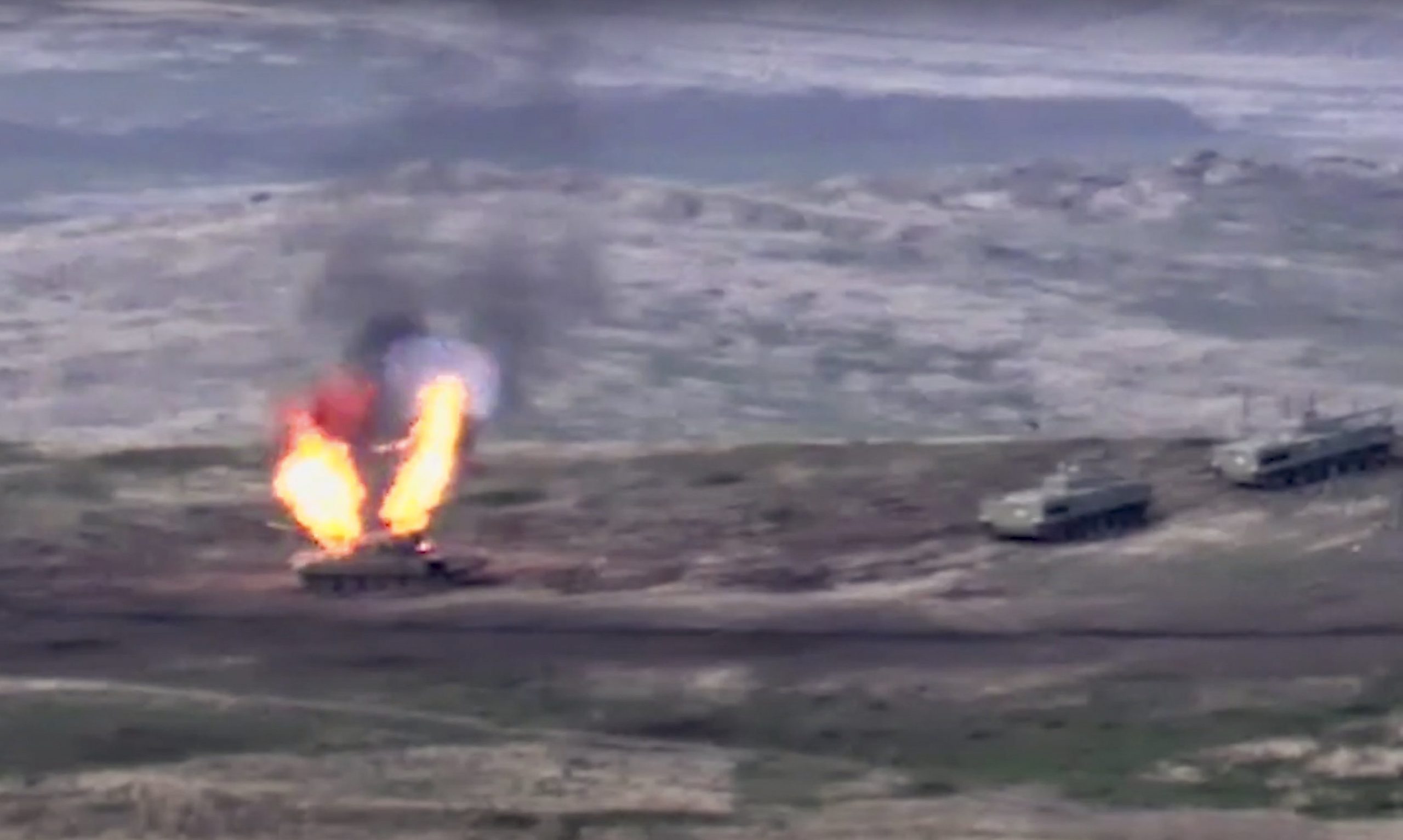
Last Sunday, fighting renewed in the Nagorno-Karabakh region, officially part of Azerbaijan but governed by Armenians, causing a number of civilian and military casualties. According to the Hungarian Ministry of Foreign Affairs and Trade, “as Nagorno-Karabakh lies within the borders of Azerbaijan,” Hungary stands by “the territorial integrity” of Azerbaijan in the conflict, which is expected to be discussed at the two-day EU summit starting today.
The Nagorno-Karabakh region is officially part of Azerbaijan, governed by ethnic Armenians, therefore the area is a buffer zone between the Baku and Yerevan. The two former Soviet republics fought a war in 1988-94 over the territory. Although Armenia backs the self-declared republic, it has never officially recognized it. It is still unclear what caused the renewed fighting, the heaviest since 1994, which broke out last Sunday.
Since last weekend, dozens of people have been killed with hundreds wounded, and there are growing fears that international powers could be dragged into the conflict as well. According to the latest official figures, sixteen Azerbaijani nationals have lost their lives in the clash, while Yerevan has reported 104 military and 23 civilian casualties.
Hungarian news portal index.hu asked the Ministry of Foreign Affairs and Trade on Hungary’s stand on the matter. In its reply to the paper, the ministry stated:
The Armenian-majority Nagorno-Karabakh lies within the internationally recognized borders of Azerbaijan, and Hungary supports the territorial integrity and sovereignty of the states as a general principle of international law.
They added that the country supports the reduction of tensions in the escalating Armenian-Azerbaijani conflict over Nagorno-Karabakh and a negotiated solution in the framework of the OSCE Minsk Group Co-Chair’s consultations.
Hungary’s stand for Baku is particularly important because the conflict is expected to be a topic at the two-day EU summit, which begins today. One of the items on the agenda is the increasingly heated relationship between the EU and Turkey, with Ankara reportedly supporting Azerbaijan in the conflict with Armenian forces not only politically but also militarily. The Hungarian government on the other hand, has excellent relations with both Azerbaijan and Turkey, while EU leaders may be inclined to support Yerevan in the conflict.
Due to the relations between Azerbaijan and Baku, Hungary has had conflicts with the EU before. Last October, for example, it caused a great deal of controversy when the government vetoed a draft text that the EU wanted to use to warn the Turkish government that the Syrian operation could launch another wave of refugees.
While in May of this year, the European Court of Human Rights’ investigation into the case of Ramil Safarov, an Azerbaijani military officer dubbed as the “axe killer,” was concluded.
Related article
Human Rights Court: Hungary's Extradition of 'Azeri Axe Murderer' to Azerbaijan Lawful
The European Court of Human Rights has ruled on Tuesday that it was lawful when Hungary extradited an Azerbaijani national – convicted for murder in Budapest back in 2004 – to his home country, and the decision was not against international law. In the same ruling, however, the Strasbourg court condemned Azerbaijan for releasing the murderer, a former […]Continue reading
Safarov, an Azerbaijani military officer, was attending a NATO course in Hungary back in 2004, when he killed another participant in the course, Armenian army officer Gurgen Margaryan in his sleep with an axe. A Hungarian court sentenced him to life imprisonment for first degree, premeditated murder with a minimum incarceration period of 30 years. However, after his request under the Strasbourg Convention, Hungary extradited the murderer to Baku in 2012, where he was hailed a hero, he was given a presidential pardon, received eight years back pay and was even promoted. However, the European Court of Human Rights ruled it was lawful when Hungary extradited him to his home country, and the decision was not against international law.
Since that case, the Hungarian and European public opinion has been focusing on Hungarian-Azerbaijani relations. Prime Minister Viktor Orbán visited Baku last year, where he met with Azerbaijani President Ilham Aliyev. Following the meeting of the Turkic Council (which includes Turkey, Kazakhstan, and Kyrgyzstan) the Hungarian Prime Minister justified the importance of the Eastern relations with excellent economic opportunities, especially energy cooperations. With the construction of the soon-to-be-completed Southern Gas Corridor from 2023 on, a total of 1-2 billion cubic meters of gas may arrive in Hungary from Azerbaijan per year.
featured photo: Armenian Ministry of Defence/MTI/AP

